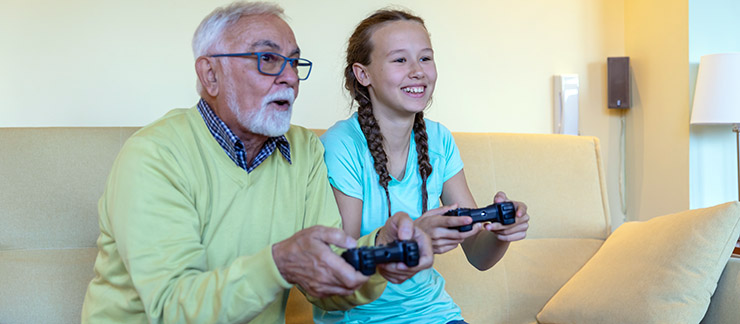Recognize the Signs of Caregiver Stress & Burnout
 If you help care for an aging or disabled family member, it’s likely that you’ve dealt with caregiver stress or burnout. Every year, over 15 million Americans provide, on average, over a thousand hours of unpaid care and support to family members, and the toll of all that work can add up.
If you help care for an aging or disabled family member, it’s likely that you’ve dealt with caregiver stress or burnout. Every year, over 15 million Americans provide, on average, over a thousand hours of unpaid care and support to family members, and the toll of all that work can add up.
As America celebrates our second annual National Family Caregivers Month, Visiting Angels is proud to recognize and pay tribute to the many Americans who contribute to a family member’s care. To help ease what can sometimes feel like an overwhelming responsibility, we’ve put together the following short guide to avoiding caregiver stress and burnout.
Know the Signs of Caregiver Stress & Burnout
As a family caregiver, it’s hard to avoid stress and burnout if you’re unaware of the signs associated with caregiver stress. If you contribute significantly to a disabled or elderly family member’s care, you should be on the lookout for signs that you’re overwhelming yourself.
Common signs of stress among family caregivers can include:
- Exhaustion, lack of energy, and fatigue
- Lack of sleep or irregular sleeping patterns
- Anxiety, worry, irritability, and anger
- Depression
- Sudden fluctuations in weight
- Physical pain, such as headaches or backaches
- Feelings of resentment
- Excessive smoking, drinking, or eating
If you start to notice one or more of these signs in yourself, you may be experiencing caregiver stress and putting yourself at risk for burnout. In this case, it’s important that you take steps to alleviate stress.
Self-Care & Stress Reduction for Family Caregivers
Many family caregivers suffering from stress put off self-care until it’s too late. Often, family caregivers feel so pressed for time that they cannot imagine taking time for themselves. But in the long run, this mindset can have a damaging effect not only on you as a caregiver, but also on your relationships with friends, family, and the person you care for.
There are number of ways that family caregivers can manage stress and reduce their risk of burnout. These include:
- Meditation. Meditation practices like yoga, mindfulness, and deep-breathing are excellent for relieving stress, and can be easily integrated into your daily life. Even a short, five-minute meditation break can be hugely beneficial to your personal well-being.
- Caregiver Support Groups. Many cities and towns have free, local support groups for family caregivers. Often, you can pick up helpful tips and suggestions on how to balance caregiving with your life. Other times, simply sharing your experiences with other caregivers can be therapeutic.
- Respite Care/Family Support. If you need help with caregiving, it’s okay to ask. Reach out to other family members and see if they’re able to provide you with support or take over parts of your responsibilities. Professional care for a few hours a week can also give you much needed time to relax, recuperate, and focus on your life.
- Nutrition & Exercise. In today’s world, it can be hard to eat healthy. And it can be even harder to work exercise into your busy schedule. But the vitamins and nutrients in fresh fruits and vegetables will have a big impact on your personal well-being. The same is true of even moderate levels of exercise, like brisk walking or taking the stairs.
- Speak with Your Doctor. No-one understands how to keep you healthy and well better than your doctor. If you find yourself overwhelmed by caregiver stress, speak with your doctor about ways you can reduce stress and improve wellness in your life.
However you manage caregiver stress, just remember that the benefits of self-care are worth it. As Larry Meigs, President and CEO of Visiting Angels, says, “Family caregivers remain some of our country’s greatest unsung heroes. It’s important that we recognize they need time to care for themselves as much as they care for others.”
If you feel that outside help may be necessary to curb the stress you feel while caring for a loved one, support from a professional care provider may help.













